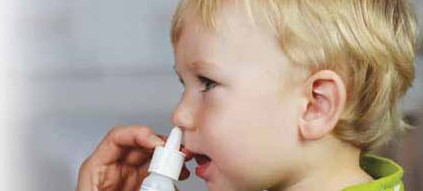 Many people are surprised to discover that children can have hay fever, or specifically, seasonal allergies.
Many people are surprised to discover that children can have hay fever, or specifically, seasonal allergies.
We know that allergies, asthma and eczema are inherited as a group. This type of allergic tendency is referred to as an atopic tendency.
Once a child is born with this tendency, we know that he/she has a higher chance of developing any one or more of the following: asthma, respiratory allergies, food allergies, eczema and other allergic skin rashes such as hives or urticaria.
Some children will exhibit one condition, while others may exhibit a few, and still others may exhibit all of these conditions at one time or another. Typically, eczema and food allergies start at a young age, as does asthma.
Causes of seasonal allergies
Tree pollens (April to June): Maple, ash, oak, elm, birch and cedar. (When they pollinate depends on the area in which you live.) Note that it is not unusual for symptoms to begin as the trees start to bloom, often in April, depending on the duration of winter that particular year.
Grasses (June to July): Kentucky blue grass, rye, orchard and timothy. Grass allergies are worsened when the grass (lawn) is mowed.
Ragweed (mid-August to October): Ragweed pollen is such an important cause of seasonal allergies that many municipalities have laws that make it illegal to allow these weeds in gardens, backyards and open fields. This is why some children seem to have symptoms during the change of a season. For example, in spring and summer, tree pollens are high. During late summer and into the fall period, ragweed is elevated.
Making the diagnosis
The only way to determine whether a child has a seasonal allergy and to which specific pollen he or she is allergic is a skin-prick allergy test or a special blood test called RAST. Identifying exactly what a child is allergic to can help us better prepare for the seasonal allergy period(s).
For example, preventative medications and other avoidance measures (such as keeping the windows closed in the morning to avoid pollen from entering the house) can be started at the onset of the specific pollen season.
Approaching seasonal allergies
• During the summer months, pollen levels fluctuate from day to day, but seem to be higher during hot, humid days. Pollen index levels are readily available through TV, radio and newspapers.
• Keeping all doors and windows closed as much as possible during the pollen season will prevent pollen from entering the home.
• During the pollen season, avoid hanging the laundry outside to dry, as the dried clothing or bedding will carry pollen indoors.
• Air conditioners help, as they can filter out the pollen.
Additionally, windows need to be closed during air conditioner use.
Treating seasonal allergies
The specific treatment of seasonal allergies depends on the age of the child and the individual situation. Below is some very general information.
• When using allergy medications, parents should be aware that these treat the symptoms and not the cause of the allergy in their children. The best approach is to identify, then avoid what a child is specifically allergic to.
• Antihistamine medications given by mouth as needed can help certain children with allergic
symptoms. While the older antihistamines caused sleepiness, the newer ones tend not to. It is a good idea to avoid antihistamines that make a child drowsy or sleepy during the day.
• Specific “anti-allergic” eye drops containing antihistamines can help relieve eye symptoms.
• Inhaled nasal preparations (pumps) containing steroids are considered to be safe and effective in
children who suffer from nasal allergies. These medications, available by prescription only, are effective if used regularly for a period of time. Using inhaled nasal steroids on and off irregularly is not very effective.
• Over-the-counter nasal decongestant sprays are generally not recommended for children. In fact, prolonged use of these medications may make matters worse.
• Asthma symptoms brought on by seasonal pollens are treated with the appropriate asthma medications, as they will not respond to the antihistamine (antiallergic) medications.
Pediatrician and health communications pioneer Dr. Paul Roumeliotis has produced of hundreds of articles, booklets and videos on a variety of child health issues. His highly acclaimed, groundbreaking book for parents focusing on the importance of the first 18 months of life, Baby Come Home, was released early in 2015 and is an Amazon bestseller. Visit www.drpaul.com and follow Dr. Paul on Twitter:@thedrpaul.


